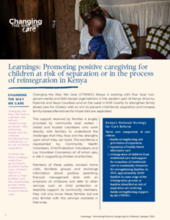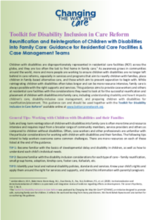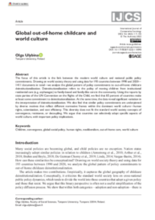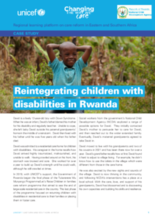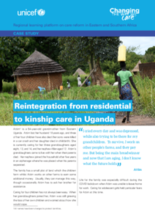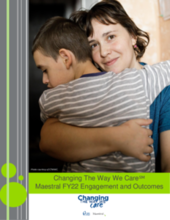Displaying 51 - 60 of 949
This CTWWC brief describes the family strengthening approach and the people who work with families and children. It shares reflections from facilitators of parenting sessions and the caregivers, themselves.
This guidance aims to provide case workers and others at residential care facilities with the considerations they need to look at for the successful reunification and placement of children with disabilities into family care, including understanding disability and how it impacts children’s care, disability-inclusive case management, and preparing children with disabilities for reunification/placement.
The focus of this article is the link between the modern world culture and national public policy commitments. Drawing on world society theory and using data for 193 countries between 1990 and 2020—1411 documents in total—the authors analyze the global pattern of policy commitments to out-of-home childcare deinstitutionalization.
This webinar examines the Bright Spots programme findings in relation to careleavers 'interdependence'.
This learning brief was developed as part of the CTWWC 2022 annual report and shares learning from Kenya, Guatemala and Moldova. It is intended to help other practitioners understand how to bring meaningful participation of people with lived experience into care reform. By people with lived experience CTWWC considers children and youth, care leavers, parents and other care givers who are experiencing the care system in their context.
This case study documents the story of David's reintegration from a residential care home for children with disabilities in Rwanda to kinship care with his grandparents.
This case study details the experience of Attim, a 54-year-old grandmother from Eastern Uganda who provides care for her grandchildren after they left residential care. Social workers in Uganda often find that placement with extended family members is the most appropriate option for children leaving residential care.
With a focus on 2022-23 themes of transition of care services, development of family-based alternative care, participation of people with lived experience and disability inclusion, this report details several of the significant outcomes and program activities achieved by the work of the CTWWC Maestral team over the last year.
This case study examines the transition of Patrick from residential care to being supported to live independently through a programme of supervised independent living for young people. This programme aims to ease the transition from residential care to living independently in the community and is part of the broader Tubarerere Mu Muryango Programme (Let’s Raise Children in Family) care reform programme in Rwanda.
The government of Rwanda is in the final phases of its care reform program. Having reintegrated the majority of children from residential care back to families and communities, they are now working on the reintegration of children with disabilities. In this webinar, we hear from policymakers and practitioners on how this has been done and key lessons learned.

